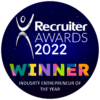
“I believe that diversity in the workplace not only produces more creativity and better engineering but supports a fairer society” Interview with Mhairi Hislop | Huboo
 Meet Mhairi, a Software Developer at Huboo in Bristol. 2 years ago she was an Operations Lead for Dyson and hadn’t written a single line of code before, so Women Rock Ambassador Doug chatted with Mhairi about how and why she decided to jump into the wonderful world of Software Development – with zero experience!
Meet Mhairi, a Software Developer at Huboo in Bristol. 2 years ago she was an Operations Lead for Dyson and hadn’t written a single line of code before, so Women Rock Ambassador Doug chatted with Mhairi about how and why she decided to jump into the wonderful world of Software Development – with zero experience!
Her story is truly inspiring and if you are in the same boat as Mhairi was – where code was (quite literally) another language – read on to discover how to make the move!
HI MHAIRI, THANKS SO MUCH FOR SHARING YOUR STORY WITH US! CAN YOU TALK US THROUGH HOW YOU CAME TO THE DECISION TO MAKE SOFTWARE DEVELOPMENT YOUR FULLTIME CAREER AFTER HAVING NEVER WRITTEN CODE BEFORE?
Yeah, so I would say that I’m very much a generalist and I’ve been lucky enough to have had exposure across a large breadth of different areas. My undergrad degree was originally in engineering and since then, I’ve worked in operations, programme management and strategy across several different sectors.
My engineering background means that I am a data driven person, and with the exponential increase in the way we store and use data, I could see a lot of opportunity in expanding my skillset to keep up.
The original plan was to do a part time masters in analytics whilst still working, but in 2019 I was made redundant along with a few hundred others as part of the Dyson Automotive project closure.
Whilst at the time this was sad and unexpected – I spent about a solid week in the pubs of Bristol afterwards, I don’t mind telling you – it gave me a huge opportunity to stop and reflect on what I actually wanted to do next.
I basically took all the things I liked about my previous roles – problem solving, data analysis and a need to improve an issue – and applied it to the kind of company I wanted to work for and the work I wanted to do.
GOING FROM OPERATIONS LEAD TO WRITING CODE AS A SOFTWARE DEVELOPER MUST HAVE BEEN QUITE DAUNTING! CAN YOU TELL US YOUR STORY OF HOW YOU MADE THE MOVE AND TALK US THROUGH THE RESOURCES AND/OR COURSES THAT HELPED ON THIS JOURNEY?
Of course. At the time, and this was just before COVID formally hit the UK, there were a plethora of online and in person courses available to learn software development. I chose a local Bristol based company, DevelopMe, after going along to an open night and being really impressed with the course material.
Before enrolling I spent a lot of time on some of the free online resources available to get a feel for writing some front-end code. This was useful just to confirm to myself more than anything, that the idea I had in my head matched the reality of writing code.
Unfortunately, when COVID hit, it obviously meant that we couldn’t study in person but the team at DevelopMe did an amazing job of turning the whole thing round to an online course in a very short space of time – they even sent us the beers and snacks!
During lockdown, luckily, my plans didn’t have to change very much at all – I cannot say how thankful I was for that. Unfortunately, DevelopMe did not make it through the pandemic, but there are other similar options available.
WHAT ADVICE WOULD YOU HAVE FOR ANYONE ELSE WHO IS LOOKING TO RE-TRAIN IN SOFTWARE DEVELOPMENT? AND ARE THERE ANY RESOURCES THAT YOU ARE AWARE OF NOW AND WISH YOU HAD HEARD OF WHEN YOU WERE MAKING THE MOVE?
Firstly, make sure you know yourself including strengths, the things that you enjoy and, more importantly, the things you don’t.
Use the abundance of free resources online to check if you like writing code before investing any money. There are plenty of other jobs in tech that might be worth considering including UX/UI, agile project management, dev ops or product management.
Once you’re as sure as you can be at this stage, and don’t worry if you’re not you’re not signing anything in blood, start looking around for courses that are going to suit what you want to do and can fit around your commitments.
I should mention at this point, there are plenty of self-taught developers out there however, if you’re anything like me, it’s worth investing in course and a bit of structure that will fast track you and help you prioritise the retraining.
There are loads of online courses available, some free, some have fees and some offer certificates. There are also several coding bootcamps around the country which offer part time and full-time intensive courses.
These are a big investment and although they often offer finance options, there are a few tips I can share that may help you choose one:
- Check their offerings – if you’re looking for part time, some may only offer full time courses which might not work for you
- Often course organisers host open nights or offer calls/in person appointments. Make use of these to ascertain whether you like the people, are clear on the syllabus, and that it will fit round your needs
- Try and find alumni to speak to and get their opinions on the course. Often you can meet them at the open nights or tech meetups
- Look at the jobs that you would like to apply for and check their requirements. Compare these requirements to any syllabuses you’re reviewing to check that they are going to give you what you need
- There are finance options out there so make sure you review what’s available to you and your circumstances
- There are loads of in person meetups, online communities and slack channels for all sorts of areas in development. I’ve found a mixture of experience at these events, and everyone is there for the same thing – meeting people and knowledge sharing. It’s worth going along
- I would also encourage you to poke around in your current workplace. There is a huge shortage of developers at the moment and, depending on the company, they may have resources available to help support your retraining in house
- Consider internship options and non-profit organisations like foundersandcoders.com/ which support minorities and people who maybe wouldn’t get the access otherwise
- When are coding take lots of regular breaks – sometimes stepping away from a problem for a bit can actually help your brain process it
A masters or undergrad is also an option however, this can be the more expensive route, and not always necessary. They also tend to be slower moving in updates to syllabuses due to the long-term nature of the course. Having said that, if this is your chosen route, there are some very relevant degrees out there particularly in analytics.
Ultimately, it’s about learning how to learn and using transferable knowledge to apply it to a new problem. Try not to get too attached to one language as, I know everyone says this but it’s true, once you’ve learned one and the premise of object-oriented programming, you can apply that knowledge to any other new OOP language.
Some of the resources I have used or can recommend are:
Training and free resources:
- codecademy.com/ – Free and paid for courses in most languages
- stackoverflow.com/ – Q&A forum which usually finds itself at the top of google searches
- developer.mozilla.org/ – Excellent documentation and resources for developers
- coursera.org/ – Online free courses by University Professors
- edx.org/ – Opensource courses governed by Harvard and MIT
- freecodecamp.org/ – Opensource educational community
- codewars.com/ – Coding challenge site for all levels
- codepen.io/ – Website full of front-end examples and ideas
Paid online subscriptions and courses:
- pluralsight.com/ – Courses on everything from data analysis to front-end but expensive
- laracasts.com/ – Excellent resource for PHP and Laravel
- datacamp.com/ – Resources for analytics and data
- udemy.com/ – Multiple courses on almost everything
CAN YOU TELL US A BIT ABOUT YOUR FIRST ROLE IN TECH? WHAT DID YOU LEARN? AND WHAT ADVICE WOULD YOU HAVE FOR SOMEONE ELSE WHEN SELECTING THEIR FIRST ROLE IN TECH?
Trying to get my first role in tech was tricky for me as it was right in the middle of 2020 and the pandemic. My role was in small start-up on the side of a more established business offering a product that was overcame some challenges raised by the pandemic.
We worked as close-knit team of four to build a platform allowing self-employed trades people to manage and conduct virtual assessments, quotations, billing and invoicing completely remotely through a web app. We also partnered with banks to allow these clients to offer finance to their customers through using this platform.
The small nature of the team meant that I was lucky to be thrown in at the deep end and got the opportunity to actively contribute large portions to the first version of the web app. The other side of this was that we didn’t have the resource for proper feature tests or QA before deployment, so I didn’t get a lot of exposure to certain areas within software development.
The main piece of advice I would give to any junior is that the interview process is as much for you as it is for your potential employer. As a junior, it’s important you get the support and training required progress to higher level. Sometimes people can be optimistic on what taking on a junior developer entails, and don’t have the structure to support them. I’ve had friends leave their roles due to this so I’m aware that I was very lucky in my first role.
FROM YOUR EXPERIENCE, HOW IMPORTANT IS DIVERSITY IN THE WORKPLACE?
The system and society under which we work is inherently unfair, and prejudiced against anyone who doesn’t fit into very strange narrow norms that we’ve created for ourselves which can be seen in the data.
STEM (science, technology, engineering and maths) is still very much a male dominated area. As of 2019 in the US, women represented under a quarter of people who worked in computing and less than 15% in engineering. Black, Hispanic and Asian people made up less that 40% of workforce in tech .
Whilst in the UK, according to a 2020 report from The British Science Association, only 27% of the STEM workforce were female, 11% were Equality Act disabled, and at that time 65% of the workforce were white men .
This means that in terms of design, there is huge potential for blind spots and discrimination to be built into our apps, algorithms, machine learning models and products from cars right through to breast pumps.
A lot of us have benefited from the privilege we’ve inherited, but at the expense of others. To change and challenge this, we need to educate ourselves on the privilege we have and become part of the solution. This can be anything from challenging toxic behaviours in the workplace right through to getting actively involved in STEM initiatives that support underrepresented minorities.
Invisible Women: Data Bias in a World Designed by Men by Caroline Criado-Perez, is a great read if you want to learn more about gender data bias in particular.
I believe that diversity in the workplace not only produces more creativity and better engineering but supports a fairer society.
WHAT WOULD YOU SAY TO SOMEONE WHO HAS AN ESTABLISHED CAREER AND WANTS TO MOVE INTO TECH BUT IS A BIT APPREHENSIVE ABOUT HAVING TO START ALL OVER AGAIN?
To be clear, I didn’t have any family commitments and as I mentioned before, I was made redundant, so I didn’t have to make the decision on whether to leave my current job – my current job no longer existed. This made it a lot easier to take the leap.
I just threw myself in and did a full-time intensive course as a result but there are part time courses, funding and finance options available to help lessen the financial constraints. As mentioned before, ask your current workplace – they may have resources to support your career goals.
I love learning and I’ve always felt like I had more to learn in whatever role I’ve been in, however, even with that mentality, I’ve still found it very humbling starting again. Be prepared to be a learner again, to ask questions and most importantly fight off the imposter syndrome. Be kind to yourself, no one else is expecting you to magically know everything after a year. Even senior developers, all the good ones anyway, will tell you they have lots to learn. When you’re in software you’re never done learning, which keeps it interesting.
Play the long game. I took a pay cut to start again. I did a check with my outgoings to make sure I could afford to live, but I’ve had to make some serious lifestyle adjustments.
Whilst experience in other fields helps, ultimately a company is paying for your knowledge in software so depending on where you are in your career, you may have to take that pay cut. The opportunity for progression that this kind of career can offer however, can make up for that – I’ve already started to close that gap.
FINALLY IS THERE A QUOTE, MANTRA OR ATTITUDE THAT YOU LIVE BY EVERY DAY?
Nothing ventured, nothing gained. Total cliché but it’s true in my head…
Thanks Mhairi! You #ROCK!






